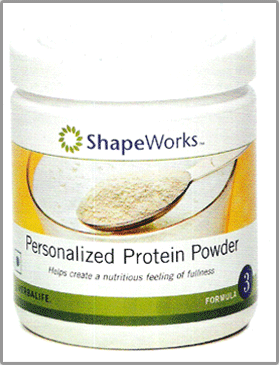amino acids and vegetarianism
Question
For 7 months, I've had chronic digestive health issues. I've had almost every test they have, but nothing was found. I became vegetarian a year ago and the Dr. said it's possible I'm not getting the amino acids I need. I take a multivitamin and because I don't really cook, eat mostly pasta, soy, little dairy, some fruit and vegetables. Any feedback is appreciated re: the possibility of needing amino acids. Thanks
Hi Lee,
This is a difficult question simply because "digestive issues" can refer to many different things....what do digestive issues mean for you?
It is definitely possible to obtain adequate nutrients from a vegetarian or vegan diet, but a bit more planning may be required than with a diet including a wider variety of animal products. So amino acid deficiency is a possibility....a bit of background info:
All proteins are composed of chains of amino acids, somewhat alalagous to a string of beads. There are 20 standard amino acids found in humans. Of these, 8-10 are considered to be "essential" (there is some disagreement on the exact number, and it also depends on age etc). The body cannot make these amino acids on its own, and absolutely needs to obtain them from food. The remaining amino acids are considered to be "non-essential," meaning that or body can make these on it's own.
Animal proteins, such as meat poultry, fish, eggs, and milk(not sure how much dairy your consuming...)contain what are known as "complete" proteins, meaning that they contain all of the essential amino acids. WIth only a couple of exceptions (primarily soy and quinoa), plant proteins are generally "incomplete," meaning that you need to consume a variety of different plant protein to ensure that you get all of your essential amino acids.
Complimentary vegetarian protein combinations include: grains and legumes, legumes with nuts and seeds, or any of these with eggs/dairy (if you choose to eat them). So, for example, rice and beans, hummus and pita, or a peanut butter sandwich would all be considered "complete."
This practice is often referred to as protein combining, and interestingly can be found intuitively within most cultural diets. You do not need to practice protein combining at every meal, or even every day. Obtaining a variety of protein sources over the course of a few days is sufficient.
Once again though, it would be impossible to determinewhat the source of you digestive issues are with so little information...some other possibilities you may want to look into are allergies, as we tend to become sensitive to the foods we consume the most frequesntly. Specifically, soy and gluten are extremely common allergens in many people, and you may want to experiment with an elimination diet to see if you feel better not consuming these foods. You may also want to seek the advice of a haturopathic doctor or nutritionist in your area to assist you with a more detailed plan for your current issues.
I hope you find this helpful,
Warmly,
Melissa
- Prev:impacted fecal matter?
- Next:Butter Milk
Related Articles
-
Cholesterol & Weight
QuestionHello, I was wondering what the main things are that I s
-
friend weight loss
Questionmy friend weighs ALO, in the 200s. In order to get to 180
-
Weight Gain & Muscle Mass Supplements
QuestionIm 52 yr. old male, handicapped and Ive had no teeth for
-
Zero Calorie Vitamin Water sweetened with Ace K and Sucralose
QuestionCan a vitamin enhanced zero calorie water beverage sweete
-
Baby weight: how to lose at home?
QuestionI am 22, married and have three small children. My oldest
-
How food effects mood
QuestionHello, I a 54 year old male. A few years ago I suffered a




